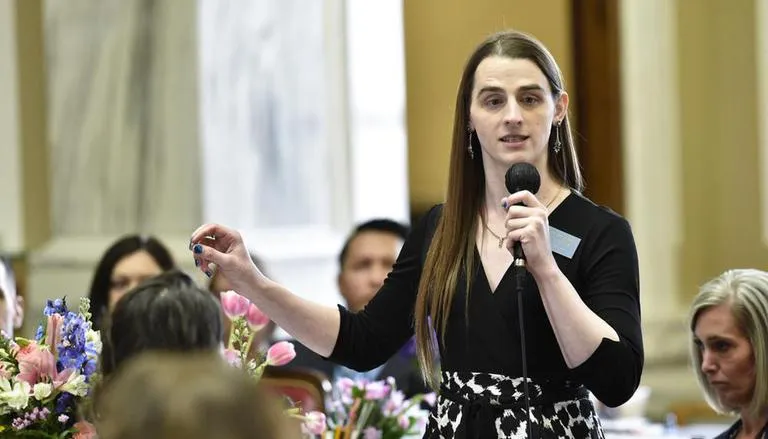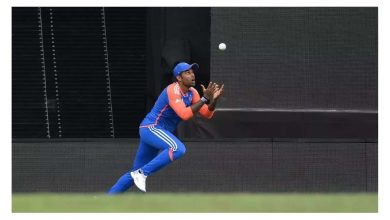GOP Zooey Zephyr Uses State Capitol Protests To Redefine ‘insurrection’

Silenced by her Republican colleagues, Montana state Rep. Zooey Zephyr looked up from the House floor to supporters in the gallery shouting “Let her speak!” and thrust her microphone into the air — amplifying the sentiment the Democratic transgender lawmaker was forbidden from expressing.
It was a brief moment of defiance and chaos. While seven people were arrested for trespassing, the boisterous demonstration was free of violence or damage. Yet later that day, a group of Republican lawmakers described it in darker tones, saying Zephyr’s actions were responsible for “encouraging an insurrection.”
It’s the third time in the last five weeks — and one of at least four times this year — that Republicans have attempted to compare disruptive but nonviolent protests at state capitols to insurrections.
The tactic follows a pattern set over the past two years when the term has been misused to describe public demonstrations and even the 2020 election that put Democrat Joe Biden in the White House. It’s a move experts say dismisses legitimate speech and downplays the deadly Jan. 6, 2021, assault on the U.S. Capitol by supporters of former President Donald Trump. Shortly after, the U.S. House voted to impeach him for “incitement of insurrection.”
Ever since, many Republicans have attempted to turn the phrase on Democrats.
“They want to ring alarm bells and they want to compare this to Jan. 6,” said Andy Nelson, the Democratic Party chair in Missoula County, which includes Zephyr’s district. “There’s absolutely no way you can compare what happened on Monday with the Jan. 6 insurrection. Violence occurred that day. No violence occurred in the gallery of the Montana House.”
This week’s events in the Montana Legislature drew comparisons to a similar demonstration in Tennessee. Republican legislative leaders there used “insurrection” to describe a protest on the House floor by three Democratic lawmakers who were calling for gun control legislation in the aftermath of a Nashville school shooting that killed three students and three staff. Two of them chanted “Power to the people” through a megaphone and were expelled before local commissions reinstated them.
As in Montana, their supporters were shouting from the gallery above, and the scene brought legislative proceedings to a halt. Tennessee House Speaker Cameron Sexton condemned the Democratic lawmakers.
“(What) they did today was equivalent, at least equivalent, maybe worse depending on how you look at it, of doing an insurrection in the Capitol,” Sexton, a Republican, told a conservative radio station on March 30.
He later clarified to reporters that he was talking just about the lawmakers and not the protesters who were at the Capitol. He has maintained that the Democratic lawmakers were trying to cause a riot.
To Democrats, Republicans’ reaction was seen as a way to distract discussion from a critical topic.
“They are trying to dismiss the integrity and sincerity of what all these people are calling for,” said Tennessee Democratic Rep. John Ray Clemmons. “They’re dismissing what it is just to avoid the debate on this issue.”
Legal experts say the term insurrection has a specific meaning — a violent uprising that targets government authority.
That’s how dictionaries described it in the 18th and 19th centuries, when the term was added to the Constitution and the 14th Amendment, said Laurence Tribe, a constitutional law professor at Harvard University.





